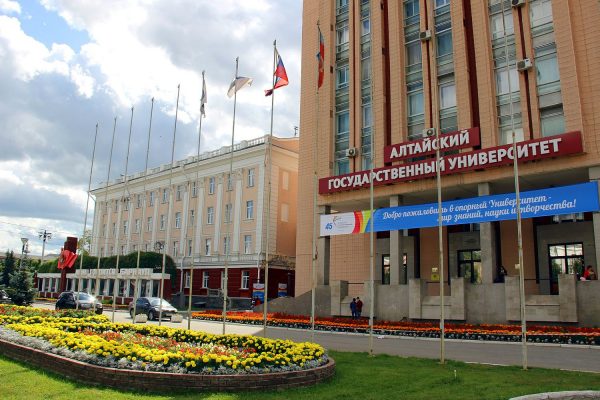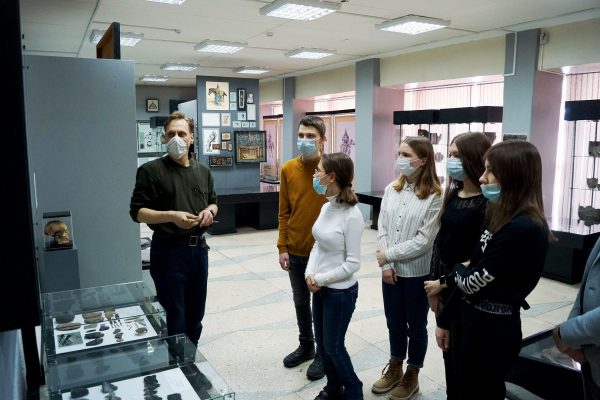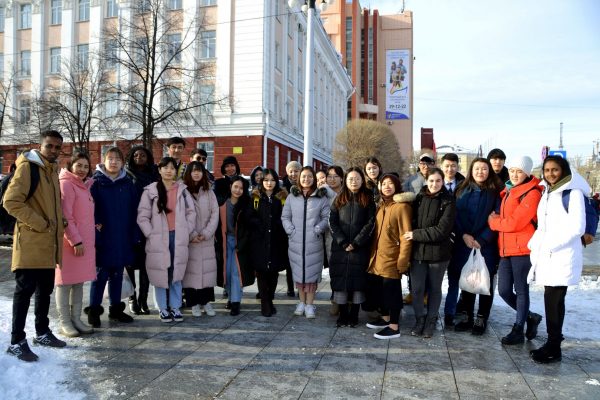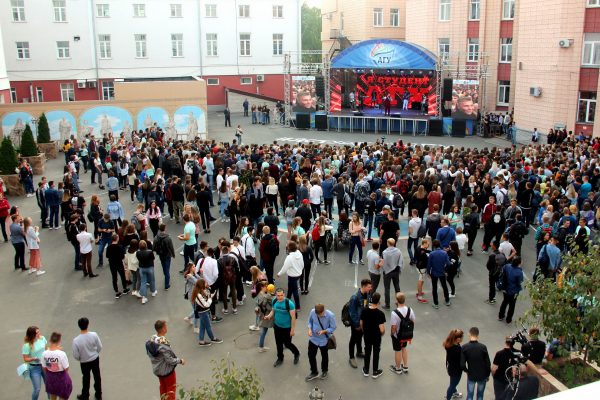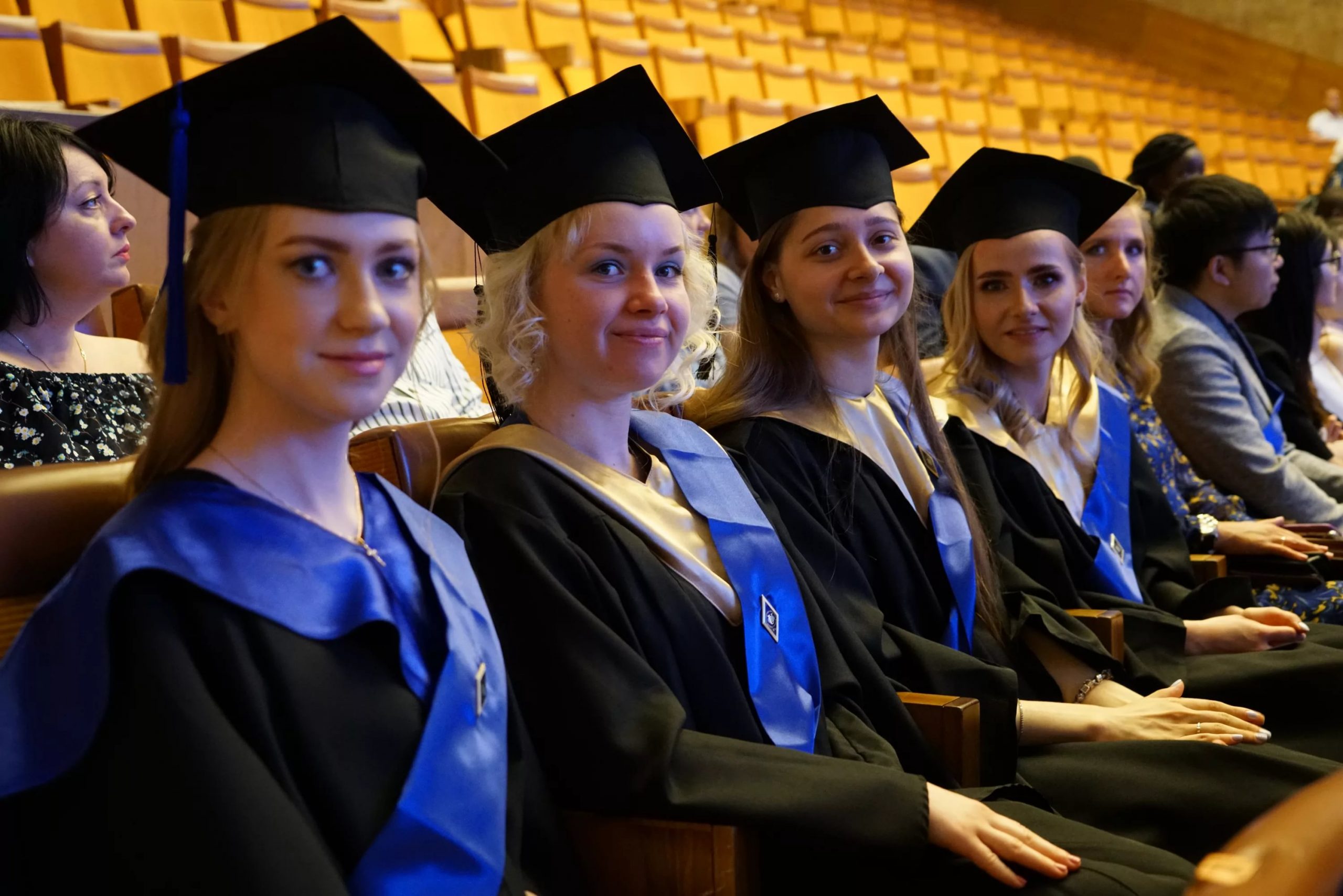
ABOUT UNIVERSITY
State Russian University is one of the largest higher institutions of our country.The University trains specialists in agriculture. The university has several buildings. There are two forms of training in the University: full-time and extramural. The University has such faculties as the Faculty of Agronomy, the Faculty of Bio-Technological Management, the Faculty of Economics, the Engineering Faculty, the Faculty of Environmental Engineering, the Faculty of Veterinary Medicine, and the Center of Liberal Arts Education.
At present there are over 7000 students enrolled in the following departments:
Agronomy Department
Engineering Department
Biologic-Technological Department
Economics Department
Veterinary Medicine Department
Natural Resources Management Department
Distance Education Department
The university has both an agricultural education center and agricultural science center of the region.
The main research activities of the University are as follows:
• Soil evaluation, forecasting soil fertility, and rational use of land resources; soil thermal physics and soil thermal improvement; anthropogenic effect on soil thermal-physic state.
• The development of effective technologies of soil fertility improvement and the techniques of efficient application chemicals in agriculture and animal production.
• Highly efficient development and use of reclaimed lands and water resources.
• Highly efficient, adapted to the market and local conditions systemic agriculture and energy-saving crop cultivation technologies, biologization of agriculture, and tillage minimization.
• The adaptive potential of spring cereal crops and forage crops on zonal and saline soils.
• Optimization of operational parameters and regimes of tillage implements, and the improvement of their design.
• Mechanic-technological substantiation, creation, and implementation of technological processes and machines of vibration-shock impact for the processing industry. Improvement and efficient introduction of advanced agricultural equipment and technologies.
• The morphologic and physiologic mechanism of animal adaptation to external environmental factors.
• The improvement of farm animal nutrition and husbandry technologies. Ecologically safe animal production.
• The improvement and development of efficient animal production technologies. The improvement of animal management and reproduction systems.
• The improvement of productive and reproductive features of cattle, the creation of the Siberian type of dairy cattle. The identification of optimal condition index of cows of different breeds bred in the Altai Region and revealing the connection with the basic economically valuable features and the application in selective animal breeding.
• Epizootological monitoring of especially dangerous infectious diseases.
• The morphology of farm animals and velvet antler deer depending on the species, age, and physiologic status; animal organopathology.
• Biogeocoenotic pathologies of farm animals.
• The prevention of diseases and the treatment of farm animals. Clinical and experimental substantiation of one-row sutures in veterinary abdominal surgery.
• Metabolic disorders (mineral, carbohydrate, fat, and protein); hormonal state disorders of the thyroid, parathyroid glands, and pancreas.
• The development and introduction of energy-saving electrical technologies, electric equipment, and means of automation in agriculture.
• The improvement of technologies of planting material cultivation and fruits and
berries growing.
• The organization and management in the agricultural industry complex, increase of efficiency of using basic production assets in market conditions. Land relations and property forms. Organization-economic foundations of the development of innovative consulting services in the agricultural industry complex.
• The improvement of accounting and economic control at agricultural enterprises under market conditions.
• Pedagogical foundations of continuous agricultural education under market conditions, the development of effective education technologies at undergraduate and post-graduate levels.
• Scientific and methodological support of land evaluation activities, the development of land management projects based on adaptive-landscape agriculture; agro-ecologic monitoring.
• Radiological monitoring.
• Philosophy and history of religion, culture, and philosophical anthropology.
One of the indispensable conditions determining the prospects of the University’s development is international cooperation. The priority is given to joint scientific research activities with foreign universities and scientific organizations, joint international publications, qualification upgrading of research and teaching staff through academic and internship programs abroad, the participation of post-graduate and undergraduate students in international scientific and academic programs.
The University entered agreements on international cooperation in the field of education and research with thirteen universities and scientific organizations of Germany, Mongolia, India, Kazakhstan, and Ukraine.
The researchers of the University are involved in joint international research projects and grant programs. An example is the research project “The Impact of Climate Change on Agricultural Ecosystems of the Altai Region, Russia” jointly implemented the
Michigan State University, USA. The project was funded by the grant of the U.S. Civilian Research and Development Foundation (CDRF) and the Russian Foundation for Basic Research.
The University is also involved in the Russian-German interdisciplinary research project “Kulunda” (Kulunda: How to Prevent the Next “Global Dust Bowl” Ecological and Economic Strategies for Sustainable Land Management in the Russian Steppes: A
Potential Solution to Climate Change), funded by the German government.
Particular attention is paid to the international programs that enable the students to learn advanced farming practices abroad. The University organizes summer internships in Germany in farming businesses. During the period from 2005 to 2014 more than 100 ASAU students were the participants of such internships. Our partners in Germany are the Bavarian Association of Farmers (Bayerischer Bauernverband – BBV), and LOGO e.V. (Landwirtschaft und Oekologisches Gleichgewicht mit Osteuropa – Agriculture and Ecological Balance with Eastern Europe).
In 2011, the Cooperation Agreement with the Himachal Pradesh University (Shimla, India) was signed, known as the Altai-Indian Himalaya Scientific and Cultural Exchange Forum. One of the achievements of the cooperation was the joint publication of the
collection of research papers in the Russian and English languages “Altai-Himalaya: Two Foundations of Eurasia” in 2011. Another successful cooperation event was the internship of the master’s degree students at the Kazakh National Agricultural University at ASAU (October, 2011).
During the 70 years since its foundation, the ASAU has trained more than 55,000 professionals who are involved in the agricultural industry and other sectors of the economy. Their professionalism and competence is the achievement of the Altai State Agricultural University and the confirmation of its quality educational programs.
ACCOMMODATION
University has a well-developed dormitory system. The rooms are maximum for 2-3 people, they are comfortable and very well furnished. Entrances to the building are equipped with video surveillance and security posts.
All dormitories have the following facilities:
• Kitchen
• Laundry room
• Reading room
• Medical aid cabinet
• Gym
• Free Wi-Fi



